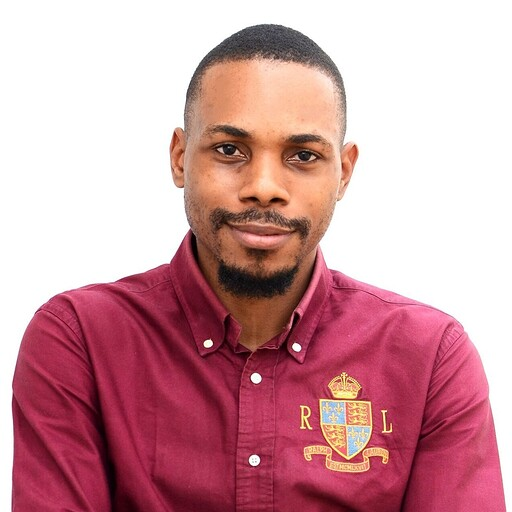📚We’re publishing a series of climate career stories, highlighting the diversity of climate journeys and what makes a climate career.
If you’re interested in contributing, we invite you to share your own story on #climate-careers or reach out to Elisa or Jon on Slack for guidance.

Chris Alafaa is a Compliance Product Manager supporting small and medium-sized businesses and corporates in integrating sustainability into their operations through environmental compliance and carbon management tools.
What is a climate career to you?
A climate career to me is building stable, healthy, and sustainable systems that allow people, businesses, and ecosystems to thrive, not just survive.
How did you get started and what changes did you make in your career to work in this space?
My climate journey began during the COVID-19 lockdown in 2020. I was in my final year studying Marine Biology, and with school on pause, I spent a lot of time reading and researching. That’s when I stumbled upon the term “climate tech.” I already had a passion for geography, geopolitics, and the environment, but this sparked something deeper. In 2021, I discovered the Climate Tech Club on Clubhouse, which helped me understand the emerging climate tech movement and solidified my interest in working in space after graduation.
I initially wanted to go for a Geographic Information System (GIS) bootcamp, since I’ve always had a strong interest in geography and geospatial tools. But when I couldn’t find one, I joined a software bootcamp instead to build technical skills. At the same time, I started reaching out to experts and joined online climate communities like Work on Climate and ClimateAction.Tech. Roles in climate were limited and often targeted experienced professionals, so I focused on volunteering, networking, and learning from others’ journeys. I applied for and joined the On Deck Climate Tech Fellowship and later became part of the My Climate Journey community. During this time, I also landed a freelance research role with a UK consultancy and supported them for two years.
The real turning point came in 2024 when I joined the OnePointFive Academy (OPFA) after reflecting on past rejections and identifying skill gaps. OPFA gave me a practical understanding of corporate sustainability and net zero strategy. I also completed the Terra.do Corporate Sustainability Leadership Accelerator, which further deepened my expertise. With a clearer direction, stronger CV, and focused experience, I landed my first corporate sustainability role supporting SMEs and international companies on their sustainability goals. I would say fellowships like OPFA have been instrumental. They have opened even more doors for me in corporate sustainability and strategy.
What challenges have you faced in making this transition?
Being based in Nigeria, “climate work” was often seen through an NGO lens before the post COVID climate tech wave, there were few companies operating in this space locally. I also aimed to break into Corporate Sustainability and Strategy, but the market in Africa was still emerging and leaned heavily toward more experienced professionals. This meant I had to build my skills independently, seek out global communities, and essentially carve my own path into the field.
Any advice you’d like to share with others on their own climate journeys?
Start by joining climate communities and stay active. Being around others on similar paths makes the journey less isolating. Connect with people who share your background; it helps to see relatable examples. Be specific about the area of climate you want to work in, because the climate sector is broad. Once you’ve found your niche, identify skill gaps and upskill intentionally. Having that focus can make a difference.
You can connect with Chris on LinkedIn and visit his website at chrisalafaa.com.
If you’re interested in contributing, we invite you to share your own story on #climate-careers or reach out to Elisa or Jon on Slack for guidance.